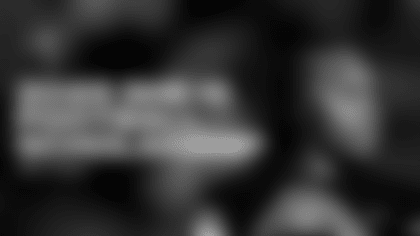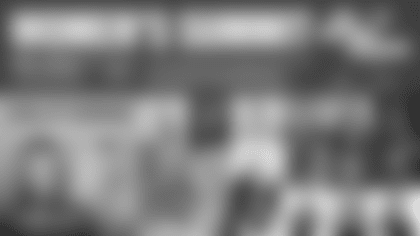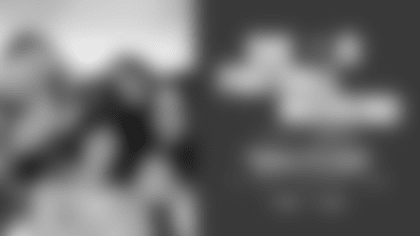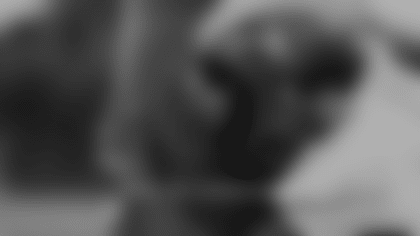WR Brian Clark found himself immersed in a large group of dedicated athletes at the No Limits Sports Day event
For many of us, making a free throw is tough enough. Try it while seated in a wheelchair.
That's nothing, however, for Paralympic basketball players, many of whom face much more difficult challenges on a daily basis. After a visit to the "No Limits" Sports Day in Tampa on Saturday, Tampa Bay Buccaneers wide receiver Brian Clark was able to appreciate how these young athletes have overcome such challenges to excel in the sports arena.
The goal of the "No Limits" Sports Day, which was co-sponsored by Shriners Hospital for Children-Tampa and Paralympic Sport Tampa Bay, was to increase awareness of the benefits of recreational or competitive sports for youth with physical limitations. Some of the event's activities, such as wheelchair basketball, were a bit more difficult for the average onlooker. Just ask Clark, who was defeated in a friendly shootout by Paralympic basketball player Paul Shulte, who represented the United States in the 2008 Beijing Olympics.
"I definitely have more respect for the difficulties of what they have to go through, just being able to shoot a basketball from a wheelchair," Clark said. "You think that I'm 6'2" and have a different view of the rim, and then dropping down a few feet, the whole technique of shooting changes."
Clark traveled around the state-of-the-art All People's Life Center in Tampa to encourage as well participate in the day's sports events, which included adaptive tennis, karate, hand cycling and table tennis. He quickly realized he was not the only accomplished athlete in the facility.
"It just brings a sense of respect for another athlete," said Clark of his tour. "It's great to be able to see someone with the disabilities that we as professional athletes don't have come out and compete, prepare, train and give the maximum amount of effort. You have to appreciate that, athlete to athlete."
Paralympic Sport Tampa Bay, a program of Hillsborough County Parks, Recreation and Conservation Department, provides sports programs that promote physical activity, healthy lifestyle and competitive sports opportunities for children and adults who have a physical disability. The organization is part of a national network of community-based clubs whose aim is to maximize the potential of individuals with physical disabilities through sports.
"I think those difficulties make you respect what they do even more because you see the challenges that they have as far as being in the wheelchair," said Clark. "It's not as easy as it looks, and these people that make it look easy, you have to have a whole lot of respect for them because those are what professionals do. Some of these kids here you would think they were professionals by the way that they shoot the ball without any effort."
Andy Chasanoff, Sports Coordinator for Paralympic Sport Tampa Bay, was thrilled with the outcome of the event, as well as Clark's participation.
"It was an awesome experience for our athletes to meet a professional athlete, and I think Brian was tremendous in welcoming the kids and playing basketball, tennis, table tennis with them and trying to see what it was like being in a wheelchair," said Chasanoff. "I think he did it with grace and spirit and I think he had a great time, but he also saw that these kids put the same effort and intensity into training. They really are athletes and should be seen for their ability and not their disability."
The resilience and pride that each athlete exuded in their events brought about admiration from all angles of the facility.
"When I look at them and I see them out here challenging themselves and competing against others, I just have a sense of respect for them," said Clark.
The mission of Paralympic Sport and Shriners sums up the motivation for these athletes well: "If better is possible, then good is not enough."


































